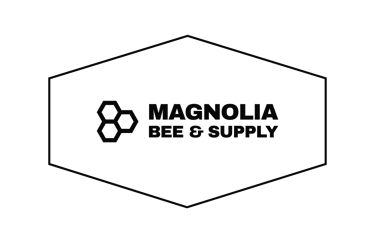Beekeeping: A Beginner's Guide
Beekeeping is a rewarding hobby that not only offers the sweet reward of honey but also plays a crucial role in the pollination of plants and the overall health of the environment. If you're interested in starting your own beekeeping journey, here's a guide to help you get started.
Finding Bees:
The first step in beekeeping is acquiring your bees. You can purchase bees through local beekeeping associations, which often offer packages of bees or "nucs" (nucleus colonies) in the spring. Another option is to capture a swarm, which is a natural occurrence when bees are looking for a new home. However, this method is not guaranteed if you are ready to start, but can be very economical.
Finding Equipment:
The essential equipment for beekeeping includes a beehive, which can be bought pre-assembled or in parts that you can put together yourself. You'll also need a bee suit for protection, a smoker to calm the bees, hive tools for maintenance, and a feeder for supplemental feeding during certain times of the year. You can find local resources that may sell equipment and would be a great resource of knowledge for beekeeping in your area.
Finding Resources:
Educating yourself is key to successful beekeeping. Books, online forums, and local beekeeping clubs are invaluable resources. Clubs often offer beginner courses and the opportunity to learn from experienced beekeepers. Finding a club near you will be one of the most beneficial action you can take to further your knowledge in Beekeeping. Nationally you can check out the American Beekeeping Federation. If you are in Texas, check out the Texas Beekeepers Association. Most states have a state association for beekeepers, be sure to look them up. Additionally, agricultural extension programs at universities can provide guidance and support. A number of universities have created videos that you can watch at your leisure and are very good source of information.
Getting Started:
Once you have your bees and equipment, select a suitable location for your hives. It should be a flat, sunny spot with some shade and protection from strong winds. Ensure there's a water source nearby, as bees need water just like any other living creature. You might also consider the structure you sit the hive on to make it easier on your back during routine hive inspections. Also consider adding some barrier under your hives, this will prevent weed growth and also provide additional barriers of some of the pests that require going to dirt.
Maintenance:
Regular hive inspections are necessary to check the health of the colony, monitor honey production, and prevent any potential issues. You'll learn to look for signs of diseases, pests, and ensure the queen is healthy and laying eggs.
Harvesting Honey:
After your bees have settled in and started producing honey, you can look forward to harvesting. This usually happens once a year, depending on your local climate and the health of your bees.
Remember, beekeeping requires patience and a willingness to learn. Every colony is unique, and what works for one beekeeper might not work for another. Embrace the learning process, and you'll find beekeeping to be an incredibly fulfilling experience.
Happy beekeeping! 🐝


Get in touch
Address
1010 Magnolia Bvld Suite K
Magnolia Tx, 77355
www.magnoliabeeandsupply.com
Magnolia, Texas 77355
Contacts
281-305-4072
info@magnoliabeeandsupply.com
magnoliabeeandsupply@gmail.com
Provide your email address below to stay informed of specials offers, other beekeeping related information
